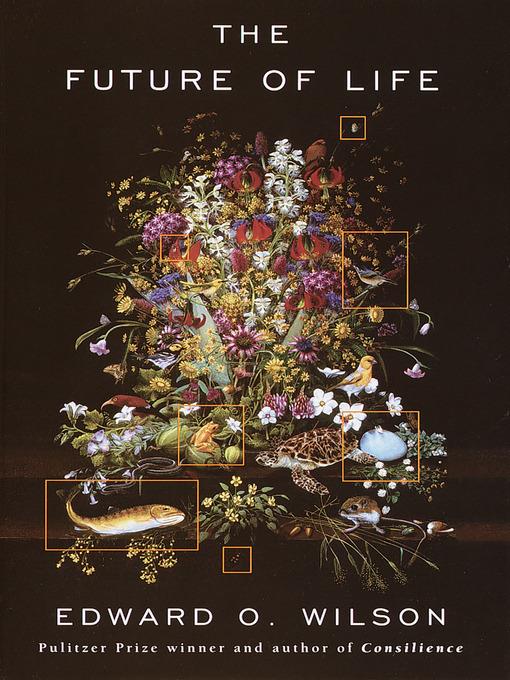
The Future of Life
کتاب های مرتبط
- اطلاعات
- نقد و بررسی
- دیدگاه کاربران
نقد و بررسی

Starred review from December 17, 2001
Legendary Harvard biologist Wilson (On Human Nature; The Ants;
etc.) founded sociobiology, the controversial branch of evolutionary biology, and won the Pulitzer Prize twice. This volume, his manifesto to the public at large, is a meditation on the splendor of our biosphere—and the dangers we pose to it. In graceful, expressive and vigorous prose, Wilson argues that the challenge of the new century will be "to raise the poor to a decent standard of living worldwide while preserving as much of the rest of life as possible." For as America consumes and the Third World tries to keep up, we lose biological diversity at an alarming rate. But the "trajectory" of species loss depends on human choice. If current levels of consumption continue, half the planet's remaining species will be gone by mid-century. Wilson argues that the "great dilemma of environmental reasoning" stems from the conflict between environmentalism and economics, between long-term and short-term values. Conservation, he writes, is necessary for our long-term health and prosperity. Loss of biodiversity translates into economic losses to agriculture, medicine and the biotech industries. But the "bottleneck" of overpopulation and overconsumption can be safely navigated: adequate resources exist, and in the end, success or failure depends upon an ethical decision. Global conservation will succeed or fail depending on the cooperation between government, science and the private sector, and on the interplay of biology, economics and diplomacy. "A civilization able to envision God and to embark on the colonization of space," Wilson concludes, "will surely find the way to save the integrity of this planet and the magnificent life it harbors."

January 1, 2002
Biodiversity on Earth is threatened by rampant human consumption and the resulting pressures this places on fragile ecosystems. In the short term, the cost/ benefit analysis has almost invariably favored human needs. Still, according to Wilson, a noted biologist and Pulitzer Prize-winning author (On Human Nature, The Ants), these imperatives are not mutually exclusive. His contention has two key elements. The ethical argument is familiar, although he adds a new dimension with his "biophilia" thesis, i.e., that humans possess an innate need for and attraction to other living things. The economic argument is perhaps more intriguing, but it requires longer-term thinking and a leap of faith. In the title to one chapter, Wilson asks, "How Much Is the Biosphere Worth?," and his answer is that it has immeasurable value we have only begun to tap. In many ways, this book can be regarded as a sequel to The Diversity of Life (1992), albeit with some redundancy. Wilson seeks to reconcile the tensions between capitalists and environmentalists. Whether he does so is debatable, but he undoubtedly contributes to the discussion. For general readers. [Previewed in Prepub Alert, LJ 9/1/01.] Gregg Sapp, Science Lib., SUNY at Albany
Copyright 2001 Library Journal, LLC Used with permission.

December 1, 2001
When in " Consilience" (1998) Wilson said he wanted to revive the Enlightenment's project of showing that all creation, including human thoughts and feelings, is orderly and explicable, hackles popped up all over the place, and he was denounced as a heartless mechanist bent on reducing the human brain to an electronic gadget. Those hackles' wearers should be thoroughly confounded by this reasoned and passionate plea on behalf of natural biodiversity that offers up Emi, a captive specimen of the severely endangered Sumatran rhinoceros, as its identity figure and sympathetic hero, and devotes an entire chapter to arguing that rescuing and preserving wild species is tantamount to self-preservation, for wilderness is the ground of the human spirit. Pretty confusing for the critics of " Consilience," who saw Wilson explaining away our souls, artworks, and religions as the output of so much organic hardware, and turning us into robots made of meat! Moreover, what Wilson proposes as the most important task for the twenty-first century--"to raise the poor to a decent standard of living worldwide while preserving as much of the rest of life as possible"--is squarely in line with the thinking of mainstream environmentalism, liberal humanism, and responsible capitalism, and with the religious principle of stewardship. And very few have written this kind of environmental advocacy with as much authority, cogency, and style.(Reprinted with permission of Booklist, copyright 2001, American Library Association.)

























دیدگاه کاربران